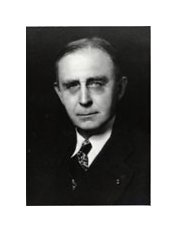|
First Appeals Board at the U.S. Copyright Office is the “Revisory Board” Colonel Bouvé was appointed Register of Copyrights on August 1, 1936, the first lawyer to serve as Register. He was a firm believer in the registration system, and his administration of the Copyright Office was notable both for the improvements he made in the organization of the Office and for his constant and energetic endeavor to obtain strict compliance with the conditions and formalities fixed by the statute for securing and maintaining copyright, especially the deposit provisions that enrich the collections of the Library of Congress. This effort included the creation of a legal staff, the establishment of an Examining Section to pass in the first instance on all applications, and the formation of a Revisory Board composed of attorneys and other experienced employees to act on applications initially rejected or those presenting unusual problems. The history of the Board is further explained in 8 Patry on Copyright Appendix B § B6 (Westlaw through 2022): The first appeals board at the Copyright Office, called the “Revisory Board,” was also established. The Revisory Board was comprised of “not less than three persons of long experience in dealing with questions of law and with the procedure of the Copyright Office ...” The function of the Revisory Board was to take final action “on such questions as are brought before it from the Examining Board.” Although the Revisory Board was governed by majority vote, unless a recommendation of rejection was unanimous, the matter was referred either to the Assistant Register of Copyrights, to the Legal Advisor, or to the Register. In practice, it appears that appeals went initially to the Assistant Register. Appeals came to the Revisory Board through its Chief, who was required to review personally the daily correspondence of the Examining Board. When the correspondence indicated a doubt about the propriety of the action taken, the Chief consulted with the Coordinating Assistant, who was also the head of the Examining Board. If these two could not resolve the matter, the case was referred to the Revisory Board, which frequently issued written summaries of their decisions. It is unclear whether applicants could request the Revisory Board to review a rejection. The materials from the Board were obtained by a Freedom of Information Act request. A copy of that request is linked for this page. The collection, consisting of five large batches of documents in PDF format was reviewed in consultation with Zvi S. Rosen, Assistant Professor of Law at SIU School of Law: |
The collection was comprised of three sets
Batch 4 was presumably decisions from the Board’s creation, and thus is somewhat unsurprisingly a mix of formats. Batch 2 and Batch 3 are Pages 411-1333 of the minutes of the Revisory Board. Batches 1 and 5 are memorandum decisions from early 1940 through the end of 1941. The minutes themselves are very interesting, and frankly generally have enough information to know what happened. The memoranda must be selective – there are many more cases mentioned in the minutes than are written up as a memo. That said, it feels like a lot is missing. At the most basic level where are the first 410 pages of minutes? Did the board stop operations in mid-1942? I wouldn’t be shocked given what was happening at the time, but that’s not what was reported in the letter, which says they produced material up to 1945. Also found in the files were a random mix: Really an amazing group of documents. We hope you find this collection as interesting as we do. We welcome your comments as well as reports on where you have used these documents or have seen them used. Email Professor Jon Cavicchi at jon.cavicchi@law.unh.edu . --------------------------------- Please find the PDF of the FOIA request for this collection.
|


 of documents:
of documents: